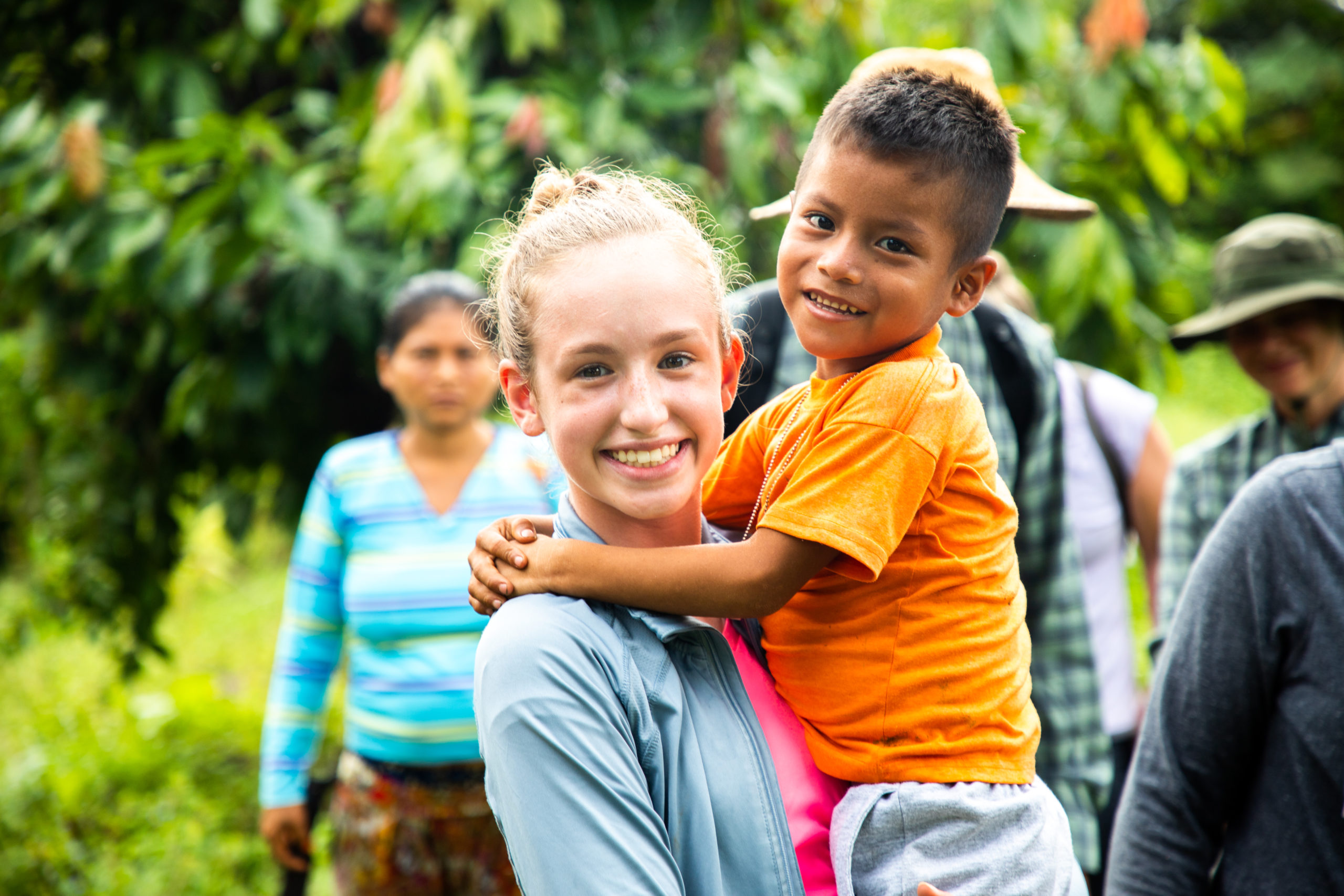Short-term missions trips, service opportunities, fundraisers and the like seem to be a staple in youth ministries across Canada. Experiences like the Identify With Poverty Challenge feel familiar, because compassion and justice are important to us as Jesus followers, and rightfully so!
But we’re also becoming aware of some of the dangers of some of our most tried and true ways to engage our students in missions, compassion and justice—and teenagers are, too. We’ve all read articles about the tensions of short-term missions. The cynicism around only going for a cute Instagram picture, at the expense of real transformation, is real.
So, as we encourage you to run the Identify With Poverty Challenge with your youth ministry, we wanted to have a candid conversation about some of the potential risks and complexities of doing this challenge (That’s right, we’re here to critique our own challenge because we believe doing this well is that important!) and talk about some strategies to confront these potential pitfalls head-on.
One of the most important conversations to introduce to your youth ministry also has its potential pitfalls… let’s unpack three potential dangers of doing the #IdentifyWithPovertyChallenge:
1. It’s insensitive to people who actually live in poverty and experience injustice.
There’s inherent privilege in being able to go on a missions trip and then come back home to a place of abundance. There’s inherent privilege in being able to identify with poverty, instead of actually just living in the reality of it. It’s important to acknowledge that. Yes, it can be awkward. And, if we’re not careful, it can be insensitive.
Trying to understand a context, culture or lived experience that’s not your own will always be uncomfortable.
It’s important to lean into that discomfort and allow it to teach you something.
Beyond leaning into discomfort, these experiences should always lead us towards hearing and amplifying the voices of the people for whom we are seeking justice. Learn the real stories of people living in poverty. Do research into the issues that affect their everyday life.
The awkwardness of the disparity is, in a way, the point. As our eyes are opened, how can we move away from an us-and-them narrative, towards acknowledging the brokenness and injustice of both the “too much” and “not enough” in the world? How can we seek to move towards flourishing, together?
2. It’s performative. We only do it to feel good – or worse, for social media clout.
Especially with an experience run entirely on social media like the Identify With Poverty Challenge, the danger of it becoming about getting likes and comments is heightened.
There’s a fine line between sharing your experience to raise awareness and invite others in, and sharing because it feels good and portrays a certain image. That danger will always be there, which makes this a fantastic opportunity to have a conversation with students about social media use and why they choose to post something (or not).
What we know from Jesus is that it’s all about the heart—and that’s another important conversation to have. What is your heart behind doing this challenge, or any other compassion- and justice-focused initiative? Does your impact and engagement with the initiative accurately reflect your heart?
3. It doesn’t spark real, meaningful change—in ourselves and the world.
At the end of the day, these experiences should transform us, re-shape our perspectives, and lead us to pursue more compassionate and just lifestyles.
A missions trip or Identify With Poverty Challenge isn’t the end, but a step in a bigger journey. How can these experiences overflow into our everyday lives? What changes do they inspire in our hearts and habits?
The goal isn’t six weeks of awareness, but a transformed life.
Ultimately, engaging with compassion and justice should draw us closer to the heart of God, who cares deeply for the poor and marginalized.
Throughout your time running this challenge and in the weeks and months after, have conversations about how the experience is impacting your real-life choices and actions. At the end of the challenge, ask yourself, what’s next? How will you model for your students that it doesn’t end with this challenge?
Don’t know where to start? Here are a few ideas:
- Do Compassion Canada’s free youth curriculum, True Story: What God Wants Us To Do About Poverty, to keep the conversation going.
- Sponsor a child as a youth ministry.
- Have a movie night and watch your favourite justice-focused film.
- Learn how to engage with a local organization serving marginalized groups in your community.
- Run a fundraiser as a youth ministry for Compassion’s COVID-19 relief efforts.
But, what if it does change everything?
Here’s the thing, the real ‘danger’ of engaging your students in missions, compassion and justice is that it might actually be a transformational experience that changes everything: your perspectives, your desires, the way you do ministry.
See, once you orient your hearts towards the needs of this world, you might find Jesus pointing you towards people, conversations, initiatives and ways of doing things that you never before imagined.
That can feel dangerous, scary and radical. But it’s also so worth it.
Are you ready to engage your youth ministry in a shared learning experience about poverty and injustice?
Try the Identify With Poverty Challenge from Compassion Canada.
>> Run the challenge <<






0 Comments